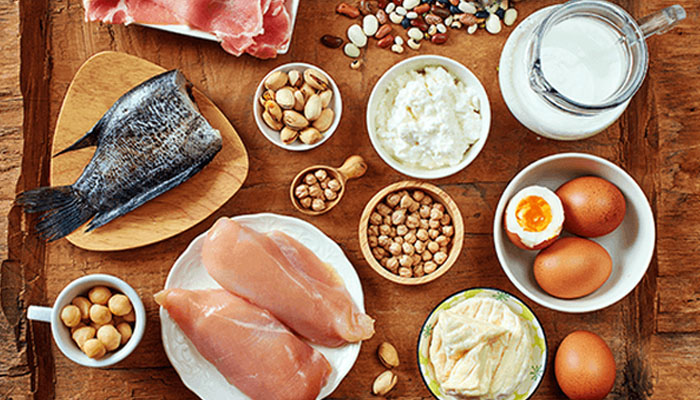Animal or plant source — which protein helps lose weight faster?
Choosing right protein source has impact on human weight management
People are more concerned than ever with reaching their protein targets but where your protein comes from is just as essential as how much of it you consume.
The body requires protein to function, and it may be found in a wide range of foods, from tofu to low-fat dairy. But not every source of protein is made equal.
In general, there are two ways that people can obtain protein: either from plant-based sources like nuts, lentils, beans, or whole grains, or from animal sources like chicken, fish, and eggs.
Furthermore, despite the fact that most people identify protein with meat, experts suggest that plant-based solutions can be the healthiest choice, especially for those trying to control or reduce weight.
“The data has started to demonstrate more and more that plant protein is equally efficacious in terms of providing the nourishment needed for the human body,” Amanda Velazquez, MD, director of obesity medicine at Cedars-Sinai, told Health. “With plant-based protein, there’s more benefits as a whole compared to animal protein.”
Experts concur that obtaining protein from plant sources is generally better for the body as a whole.
To start, compared to animal protein, plant-based protein sources typically contain more fibre.
“When it comes to weight loss, it’s especially important to be not only having high protein in the diet, but also a high fibre diet,” said Velazquez. “Animal protein is not going to have as high fibre as plant-based proteins.”
According to Amber Schaefer, MS, RDN, clinical nutrition lead and nutrition instructor at the Mayo Clinic College of Medicine and Science, while plant-based protein may be the best choice, this does not imply that a person must become a vegetarian or vegan right once. Instead, whenever you can, create substitutions.
“We do recommend at least getting three servings of some form of legume, whether that be lentils or chickpeas, or if you like, beans,” said Schaefer. “Just switching out maybe the red meat from that week so you’re reducing the amount of saturated fat that you’re getting.”
In general, people should try “leaning towards plant-based proteins,” Velazquez said, but leaner proteins such as fish, seafood, chicken, and turkey are also good options if people do want to stick with some animal protein.
“The important thing to know is that quality matters,” she said.
-
NHS warning to staff on ‘discouraging first cousin marriage’: Is it medically justified?
-
Ariana Grande opens up about ‘dark’ PTSD experience
-
Dakota Johnson reveals smoking habits, the leading cause of lung cancer
-
Chris, Liam Hemsworth support their father post Alzheimer’s diagnosis
-
Tom Hanks diabetes 2 management strategy laid bare
-
Catherine O’Hara becomes beacon of hope for rectal cancer patients
-
FDA sends 'refusal-to-file' to Moderna over new flu vaccine
-
Cure flu with theses two golden foods












